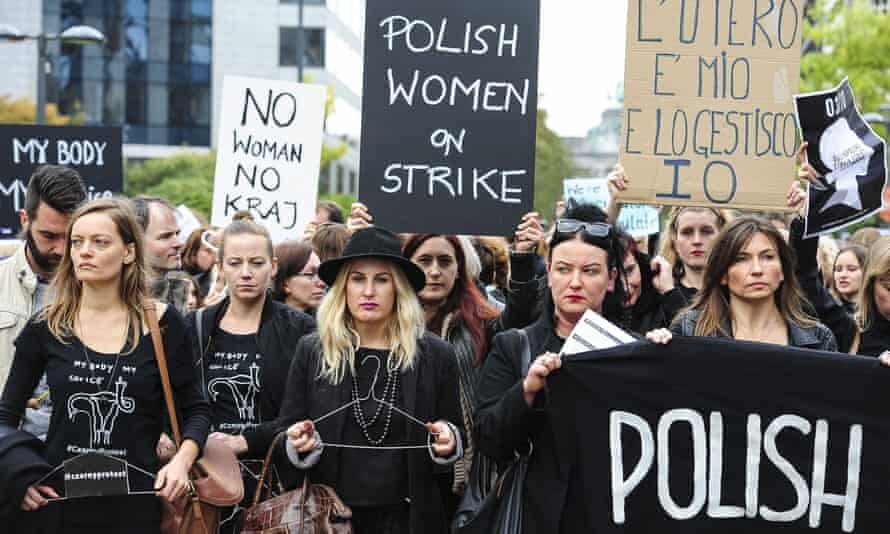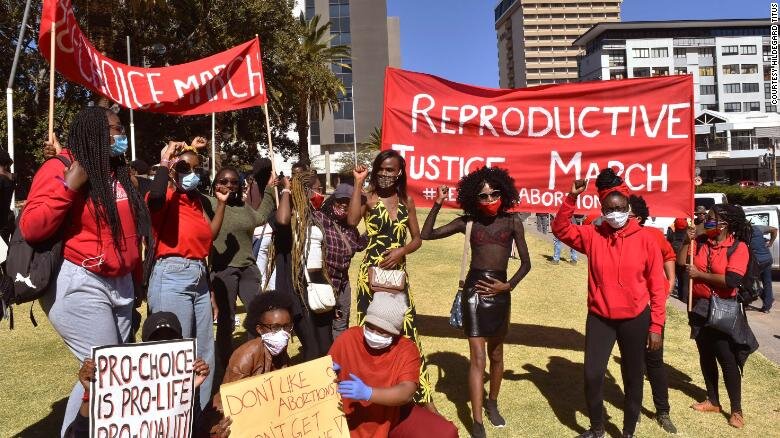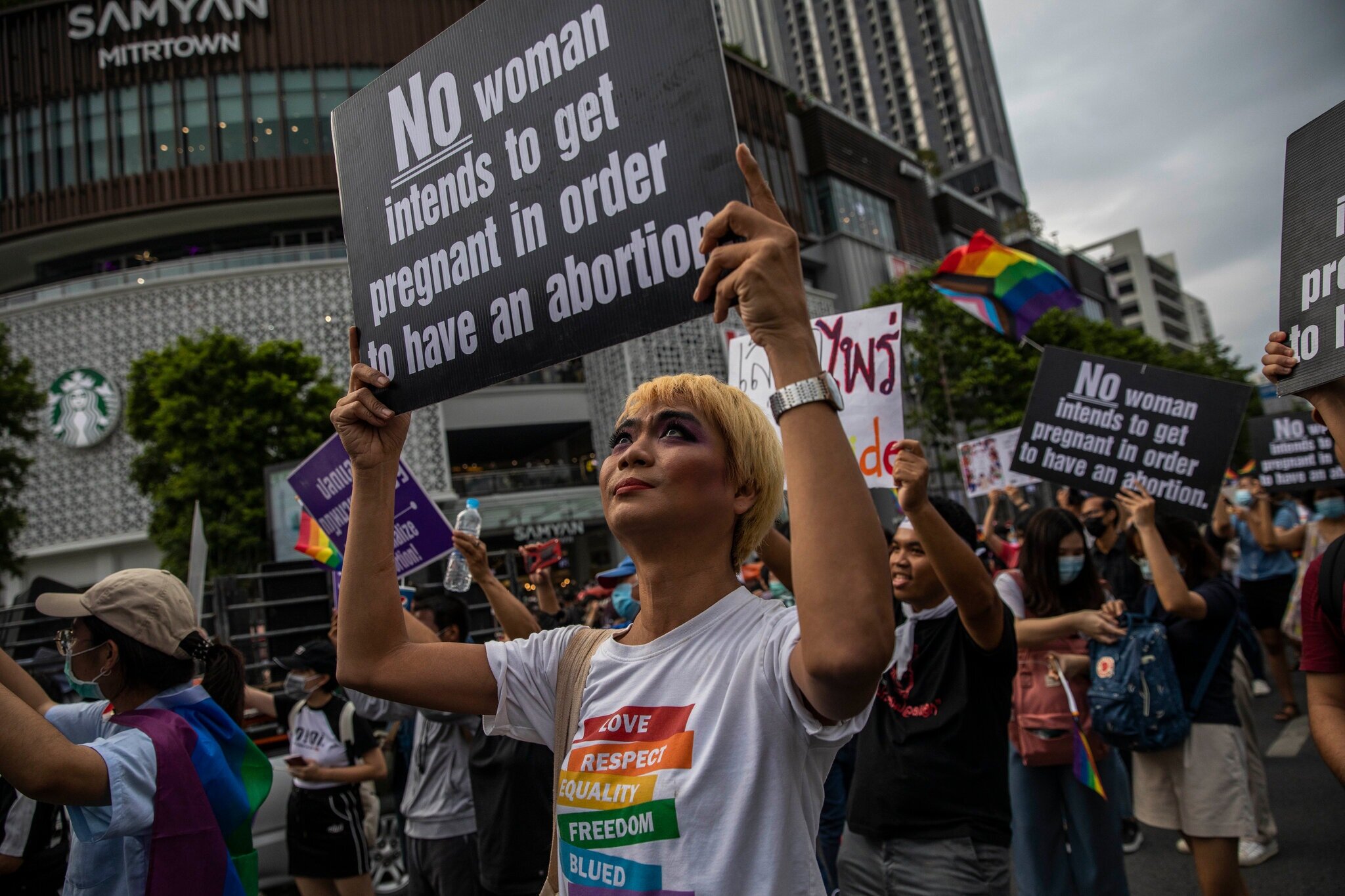The International Translation of Roe v. Wade
On January 22, 1973, Norma McCorvey’s lawyer stood on the U.S. Supreme Court floor to fight for her bodily autonomy, her right to an abortion. Norma McCorvey, then known as Jane Roe, won that case, prohibiting states from restricting abortion before the end of the first trimester of pregnancy. A landmark decision making Roe v. Wade a case frequently cited on the news and known to many Americans, the legalization of abortion improved women’s health, preventing women from needing to seek out illegal, unsafe backstreet abortions or dangerously using hangars and other objects to abort their fetuses themselves at home, and furthering the modern women’s rights movement. Women in America now had decision-making power over their own bodies and lives, a power they should have had from the beginning. The good news is that America isn’t the only country finally giving women the right to choose. While occurring years and decades later, there have been abortion rights movements in other continents— and they’re gaining speed.
After 12 hours of nail-biting and knee-bouncing on December 30, 2020, abortion was legalized in Argentina. The bill passed with a Senate vote of 38 for and 28 against. The bill’s passage demonstrates the unrelenting commitment of Argentina’s pro-choice senators to their values since, prior to their vote, they were forced to witness their opponents decked out in baby blue with a massive fetus doll doused in fake blood in front of Congress. With strong support from the conservative nation’s progressive president, Alberto Fernández, the bill permits abortion for any reason up to 14 weeks of pregnancy and in the cases of rape or health issues afterward. Even though the senators stepped up to the plate to deliver the positive change Latin American women needed, the real credit goes to Argentina’s feminist and abortion-rights movement recognized by its green handkerchiefs, symbolizing solidarity with the movement. Just as these green handkerchiefs have popped up on the bodies of people in other Latin American countries like Mexico, here’s hoping that Argentina’s new abortion law will spread to further the protection and rights of women in South America.
Inspired by Argentine legalizing abortion after a 15-year-long battle, Polish activists continue to build up a massive protest movement in post-communist Poland to repeal Poland’s almost-complete ban on abortion. Even though Poland ruled in October 2020 that even abortions of fetuses with congenital defects or those that are predicted to die upon birth or shortly after were illegal, Poland’s pro-choice activists are demanding the legalization of abortion for any reason up until the 12th week of pregnancy and the financial contribution of the national health system to fund the medical procedures. On February 3, 2021, the activists proposed their plan to legalize abortion at a press conference right outside of Parliament, but it needs to gain 100,000 signatures from Polish citizens to reach the assembly floor. This protest is Poland’s fifth try at legalizing abortion since a 1993 law restricting abortions only allowed in cases of rape, incest, medical danger, or fetal defects. Now, even if the fetal defect is fatal, abortion is prohibited because of the October court’s decision. While the Polish activists have acknowledged that real change is impossible with the country’s current conservative stronghold on the assembly, they hope to reignite the fight for abortion rights in Poland so that later on, when they have more of a chance, they will have the foundation they need to finally peel back these discriminatory laws.
61,000 people had signed the petition to legalize abortion in Namibia, Africa by November 27, 2020. The current abortion law at that time prohibited abortions for women unless there had been rape, incest, or other danger threatening the woman, girl, or unborn child. However, Namibia’s feminist movement knew that women deserve better and fought for their bodily autonomy and agency. They knew that pregnancy itself was a danger to women with 810 women dying per day in 2017 because of avoidable reasons associated with pregnancy and childbirth, so they advocated for women’s right to decide for themselves if they wanted to go through with those risks. On July 18, 2020, their petition turned into protests with hundreds of Namibian pro-choice supporters demanding the abortion law be reformed to give anyone 10 years and older access to abortion for any reason, comprehensive reproductive healthcare improvements for Namibian women, and improved sexual health education as wells as virtual protests under the hashtag #LegalizeAbortionNA. If Namibia wins their fight for more progressive abortion rights, they will join other African countries like Mozambique and Ethiopia with laws that allow girls under and over 18 to receive abortions for pregnancies up until 16 weeks. South Africa, an example for the rest, gives women of any age access to abortions for no reason up until the fetus is 13 weeks old.
In Thailand, the Parliament legalized abortions at the end of January 2021 of pregnancies resulting from sexual assault or in harm to the mother’s or fetus’s health in the first 12 weeks of pregnancy with a Senate vote of 166 to 7 to repeal and replace the previous law that had penalized those acquiring abortions with up to three years in prison and those providing abortions with up to five years in prison. However, pro-choice activists and supporters in Thailand say that this isn’t enough. Instead, they are concerned about the penalties still in place for those in Thailand who get abortions after 12 weeks: fines and jail time of up to six months in prison. The main reason for these activists’ discontent with the new law is that there were no women with experience with abortions or abortion-rights activists included in the deliberation process. Thus, the law was made without consideration of all of the other reasons why a woman might need an abortion and of the time it takes for a woman to learn of her pregnancy and then to learn of any health issues that may stem from the pregnancy. Some pro-choice supporters in Thailand are worried that backstreet abortions will continue even with this law, posing great danger to those who want abortions after 12 weeks or for other reasons not allowed by the new law. These activists have also taken to the streets, protesting in major cities like Bangkok.
In September 2019, abortion was legalized in almost all of Australia after New South Wales, the continent’s state with the highest population density, repealed a 119-year-old ban on abortion and made legal abortion accessible for up until 22 weeks of pregnancy. The 119-year-old ban had penalized abortion with up until 10 years in prison if the woman hadn’t received confirmation from her doctor that her health was in jeopardy as a result of the pregnancy. After the repeal of this law and replacement with a much better one, women in Australia can now terminate their pregnancy up until 22 weeks without a physical or mental health reason. This improvement in legislation is a result of the abortion-rights protests in June 2019, like one in Sydney, demonstrating how the abortion-rights movement in Australia steadily becomes a movement with 0 losses. Now, all that’s left before abortion is legal in all of Australia is for South Australia to follow suit.
Even with such big wins for countries in each continent concerning abortion rights, there are still countries in the world, like Malta with the most restrictive ban on abortion in the EU and little hope for a reversal of this ban, with women who aren’t as lucky to be given governance over their own body, unobstructed rights to life, liberty, and the pursuit of happiness. It’s time that abortion-rights grow into movements spanning each continent from top to bottom, left to right. It’s time that women everywhere finally feel in charge of their own existence on Earth.



